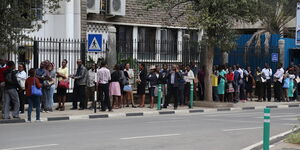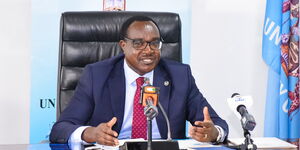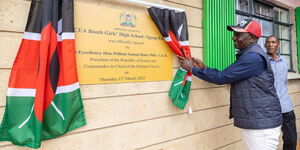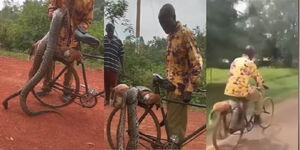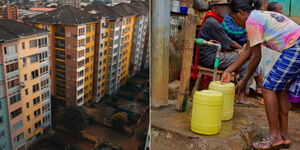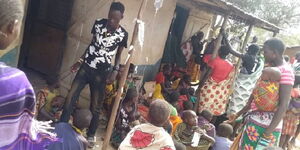President William Ruto on Tuesday, December 6, christened virtual desktops as digital wheelbarrows during their launch at the Kabete National Polytechnic.
Speaking during the event, Ruto, on a light note, joked that the laptops were more or less the wheelbarrow which dominated his campaigns.
He explained that just as the one-wheeler was a symbol of hard work and a tool that can be used to earn a living. The president explained that the virtual desktops would help Kenyans make a living in the digital space.
"Many people were wondering what was this story about the wheelbarrow. Behind me is a digital wheelbarrow here and that is the connection to the digital superhighway," Ruto teased.
The head of state disclosed that his government would invest heavily in internet connectivity under the Last Mile program.
"The government of Kenya is going to roll out another 100,000 km of fibre optic cable. We want to make sure that all the 29,000 shopping centres will be on the internet and will have a hotspot," he declared.
Ruto assured that he would work on reducing the cost of access to the web by lowering the price of data bundles.
In addition, he reiterated his plan to have smartphones manufactured locally with students in Technical and Vocational Education and Training (TVET) colleges.
"We will make available 20,000 affordable gadgets to the 240 TVET institutions so that students are able to work as they learn," the President remarked.
Furthermore, he committed to pumping in funds to the Konza city project which he claimed would be Africa's next silicon valley.
During his trip to South Korea, Ruto signed an agreement for the construction of five smart cities in Dongo Kundu, Lamu, Naivasha, Athi River and Sagana towns.
The town will be a replica of the Incheon Free Economic Zone in the Seoul Capital Area and will stimulate entrepreneurship, drive investments and spur growth in the country.

